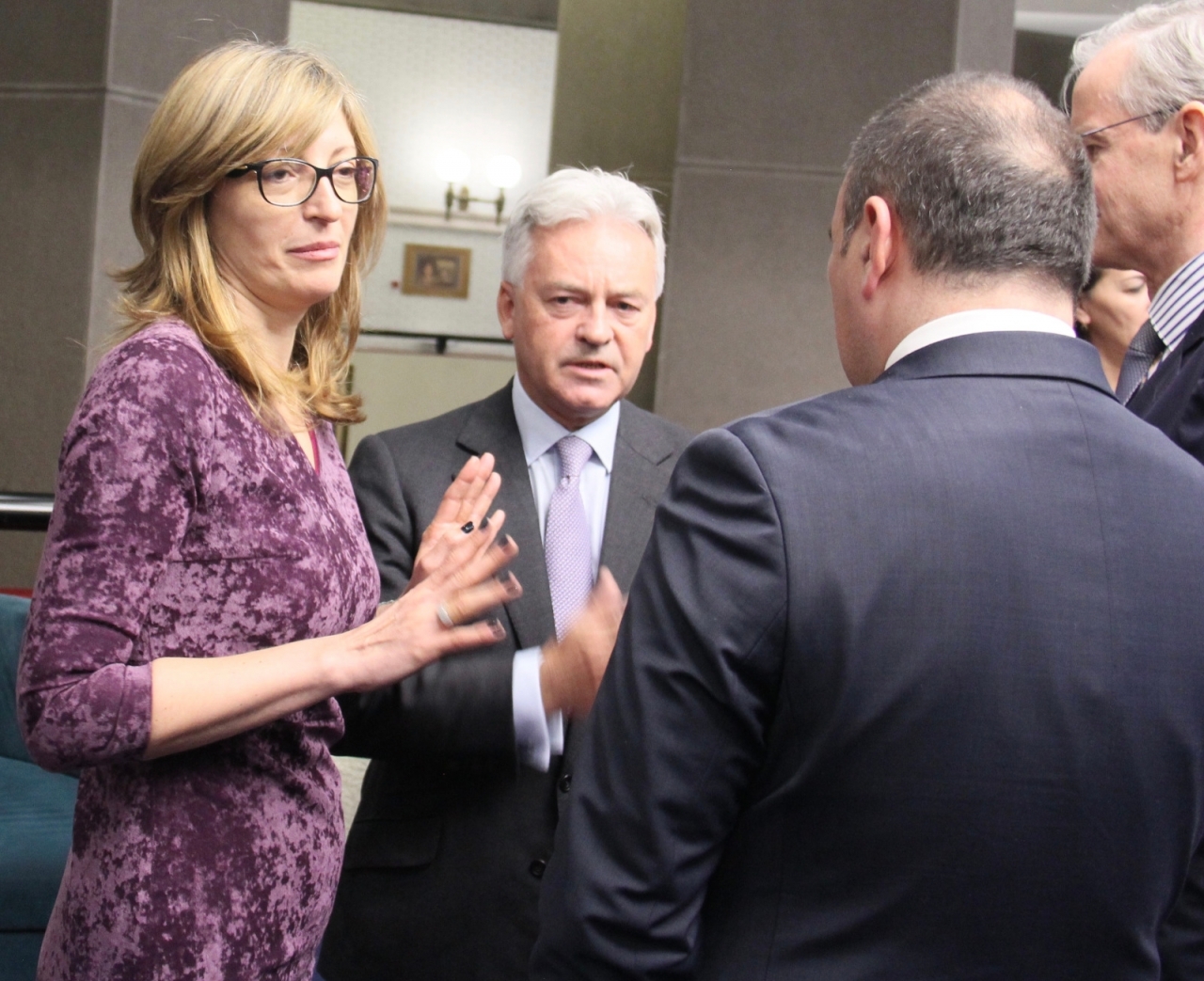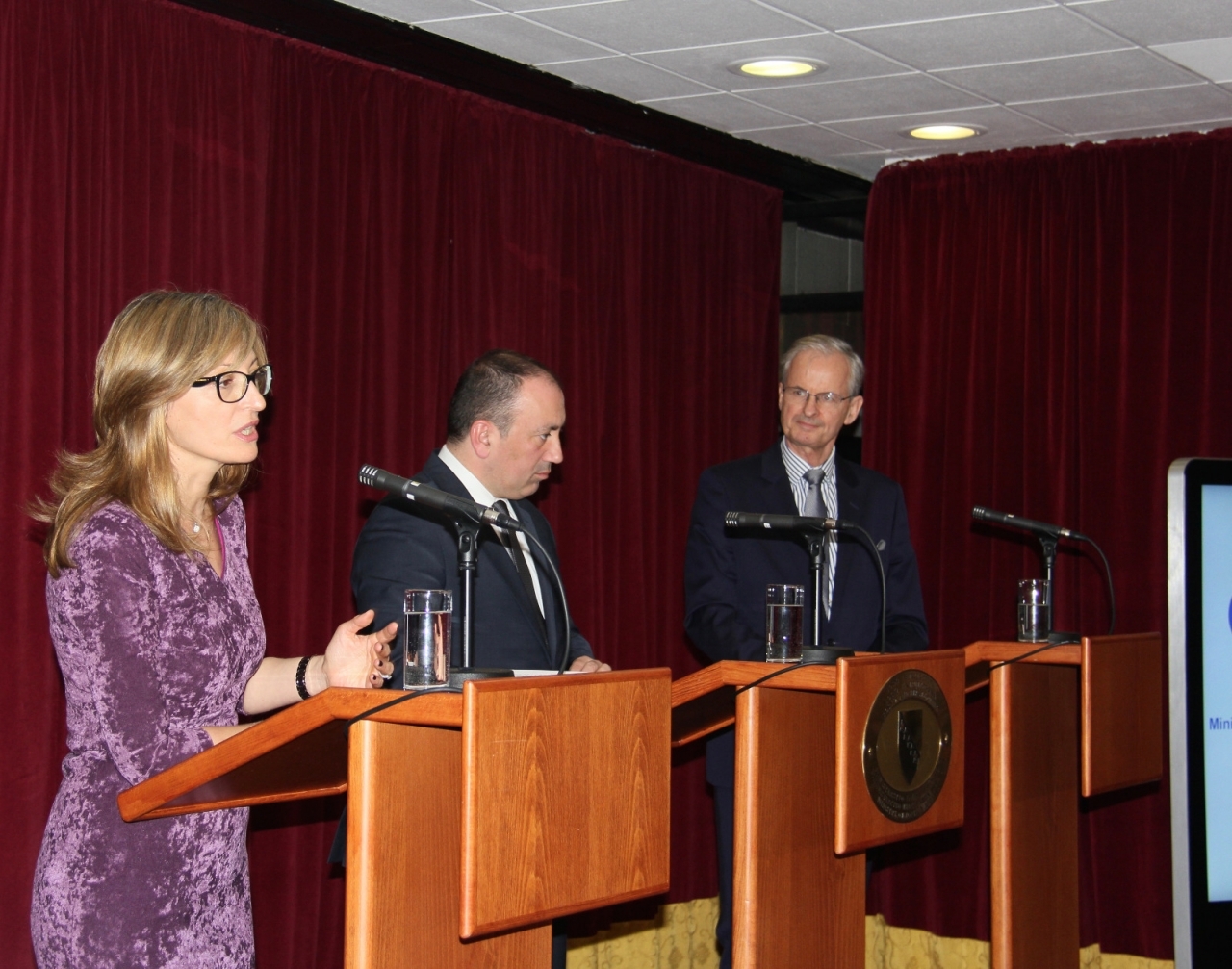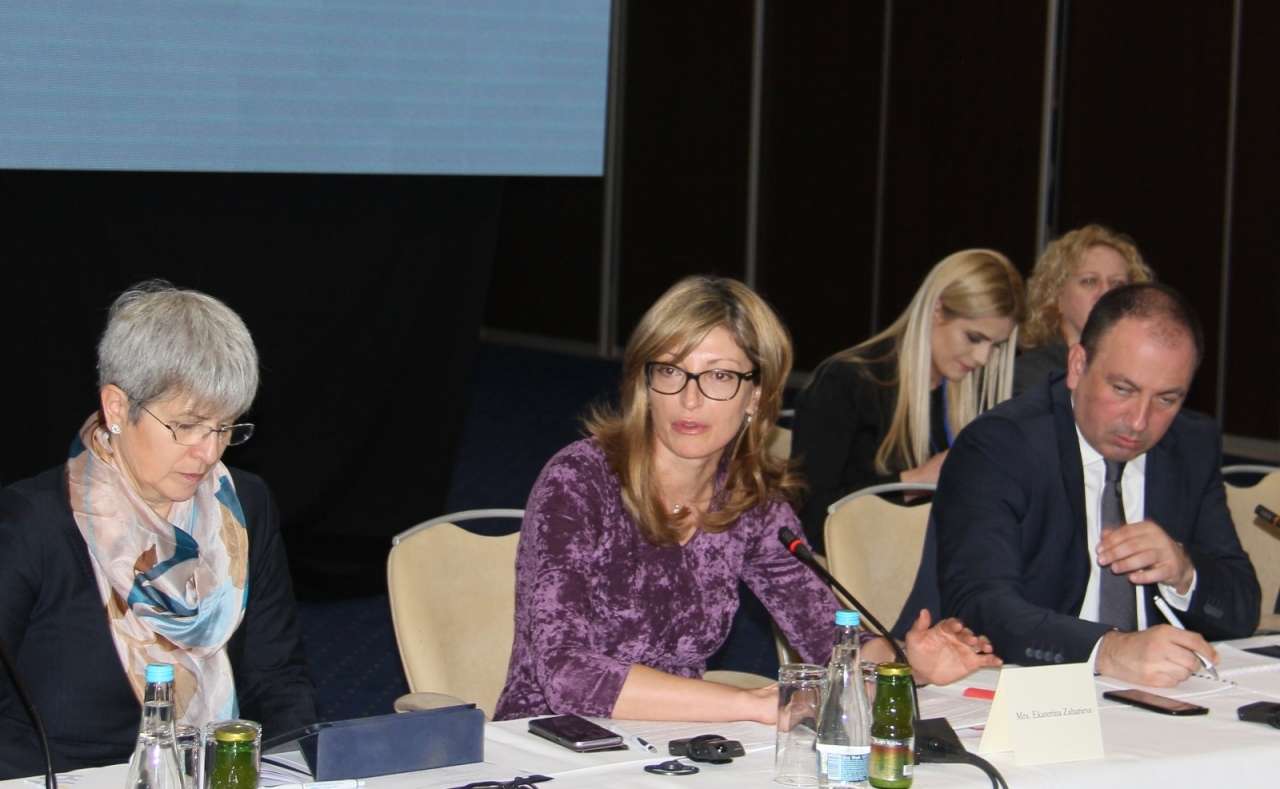Ekaterina Zaharieva to her counterparts from the Western Balkans: Let us show that we are part of the European family
16 March 2018 News
"The European Union would like to support the six countries of the Western Balkans with concrete projects. Apart from extending our political support to you, during the Sofia summit in May we would also like to negotiate specific initiatives.
Dear colleagues, we are having the great chance to show all member states that our choice to be part of the European family is not a matter of words alone. Let us show we are up to scratch with our projects as funding for them is already available."
These were the words of Deputy Prime Minister and Minister of Foreign Affairs Ekaterina Zaharieva while addressing her counterparts, the foreign ministers of the Western Balkan countries, which have yet to join the European Union.
The meeting in Sarajevo got together the Western Balkan countries first diplomats: Albania's Ditmir Bushati, Bosnia and Herzegovina’s Igor Crnadak, Kosovo’s Behgjet Pacolli, Macedonia’s Nikola Dimitrov, Serbia’s Ivica Dačić, and Montenegro’s Srdjan Darmanović. The ministers discussed not only the region’s political integration with the European Union, but also the connectivity opportunities funded under various EU programmes.
In her speech at the meeting, Minister Zaharieva reminded those present that last year the Trieste Berlin Process conference, attended by Bulgarian Prime Minister Boyko Borissov, decided to allocate EUR 500 million through seven Balkan infrastructure connectivity schemes, with 194 million coming straight from the EU and the rest made available as credit lines from the European Investment Bank, the European Bank for Reconstruction and Development (EBRD), as well as from national co-financing.
At the Investment Forum in February this year in London, attended by the leaders of the six countries and Prime Minister Borissov, EUR 800 million was earmarked for specific projects, with EBRD investments in the region alone now already exceeding EUR 10 billion.
The European Commission has raised EUR 48 million in additional funding under the Western Balkans Enterprise Development and Innovation Facility, which is expected to generate nearly EUR 250 million in revenue for companies in the region.
"I hope we won't have to wait 15 years until we see the next summit for the Western Balkans after the one in Sofia in May this year; I believe that such meetings should be held every two years," Zaharieva said in her address to the foreign ministers.
I assume that the Republic of Macedonia and Albania are ready for their accession negotiations, which will hopefully start during our presidency. We are working with Serbia and Montenegro to bolster their progress on the negotiating chapters. Our place is within the European family."
Christian Danielsson, Director-General of the Directorate-General for Neighbourhood and Enlargement Negotiations (DG NEAR), as well as the six foreign ministers specifically highlighted the "active Bulgarian Presidency", which brought the subject of the Western Balkans back into the EU agenda after a 15-year hiatus.
Earlier in the day, Zaharieva and her delegation met with Igor Crnadak, her Bosnia and Herzegovina counterpart. She congratulated him on his country’s success in handing over to the European Commission of the answers on the 3242-inquiry list, which is the first significant step towards its European integration.
"I think the Strategy for the Western Balkans presented by the EC is very positive. I assure you that the first reactions from the member states were quite encouraging," added Ekaterina Zaharieva. She also made a special reference to the EC President Jean-Claude Juncker's whistle-stop tour around the Western Balkans.
"I know how difficult it was for you to answer the questionnaire, but it is entirely worth the effort," the Bulgarian foreign minister said.
"With your treaty with the Republic of Macedonia, you have given a unique positive example to the entire region how open issues can be resolved.
And Prime Minister Borissov’s participation in Skopje in the ceremony honouring the memory of the Jews deported to the death camps has shown that this treaty is not just on paper," said Mr Crnadak. Zaharieva corroborated his assessment with the fact that after the signing of the treaty trade between the two countries has grown by 11% and the number of tourists by 10%.
The meeting wound up with the six Western Balkan foreign ministers signing a joint statement to thank Deputy Prime Minister Zaharieva, the Bulgarian EU Council Presidency, the European Commission, the British Government and the organising committee of the Berlin Process July London Summit for their contribution to the region's integration.
"We welcome the positive political message of the European Union and the green light given to us in our way forward based on our own merits. We remain determined to continue to strengthen our regional cooperation," the document says.
"This is the first meeting of Western Balkan foreign ministers where Bulgaria is invited. Everyone, including EC representatives, thanked Bulgaria for taking the focus back to the region and its outlook, and for emphasising the fact, the time now is ripe for us to achieve concrete things.
We not only need political commitment, but also concrete projects that people can feel, touch, and see. Roads create proximity among people as well," this is how Ekaterina Zaharieva summarised her impressions from the meeting in Sarajevo before the Bulgarian media at the event itself.



